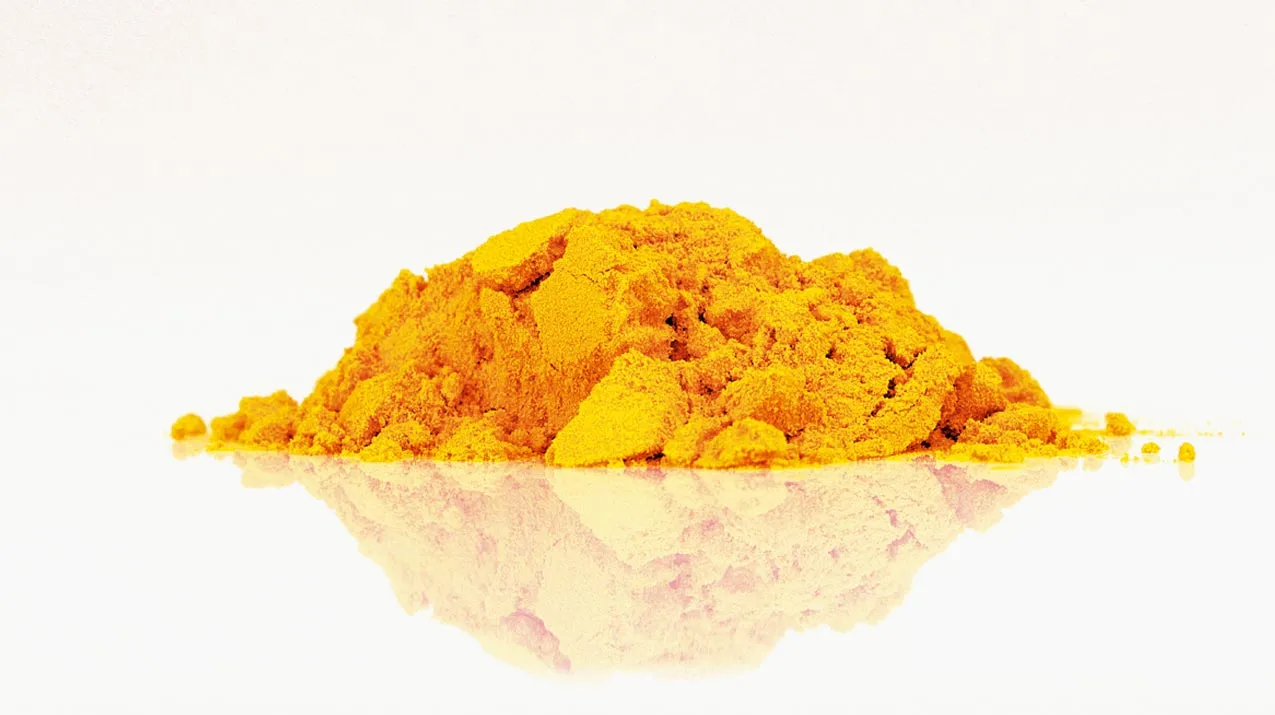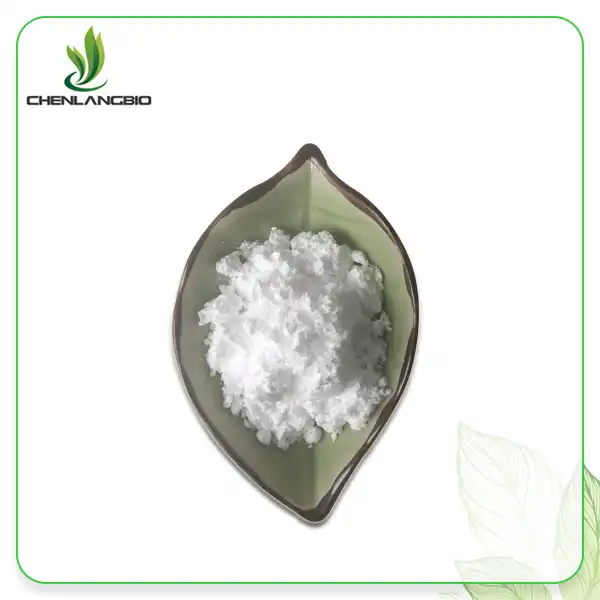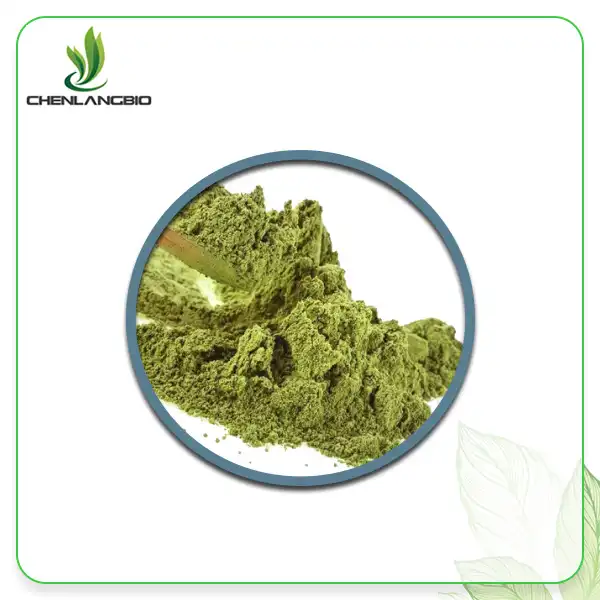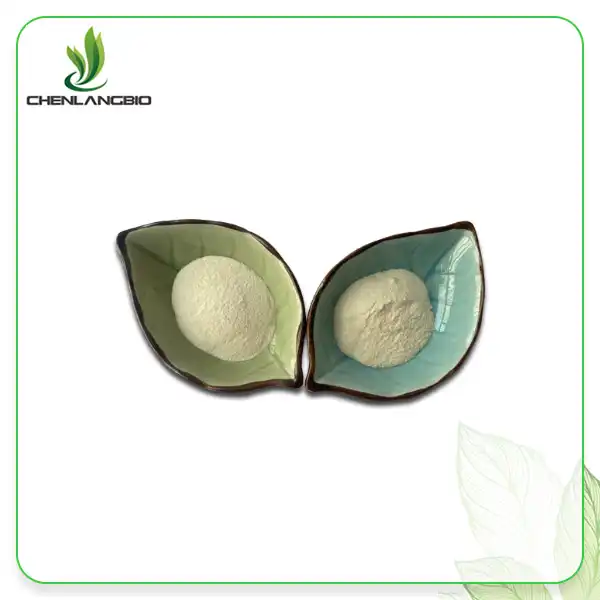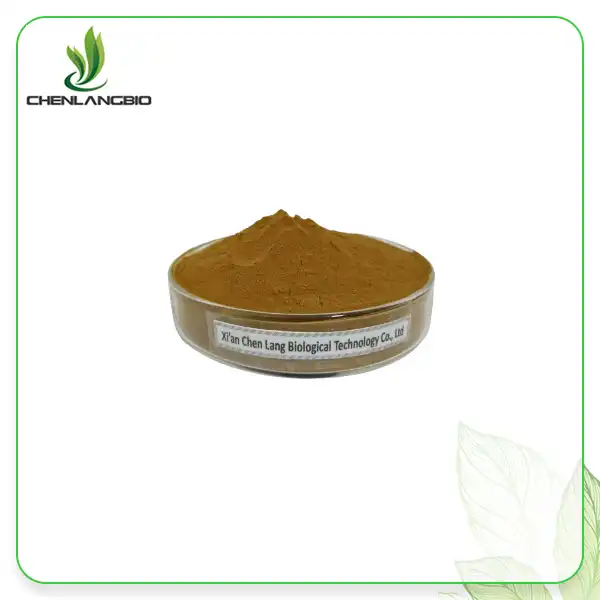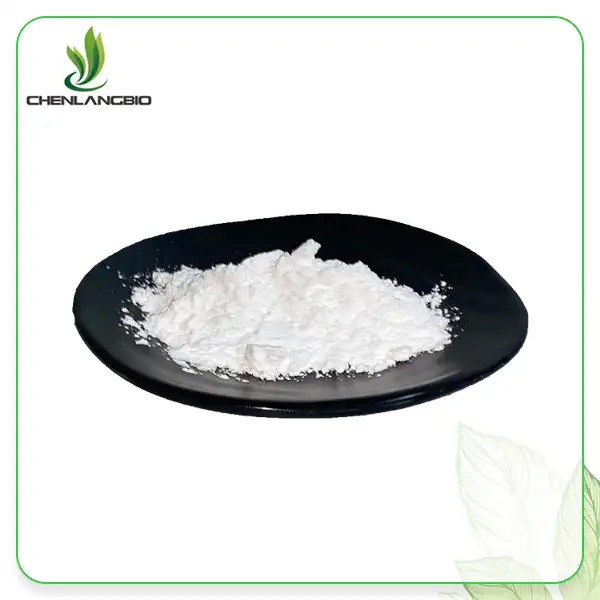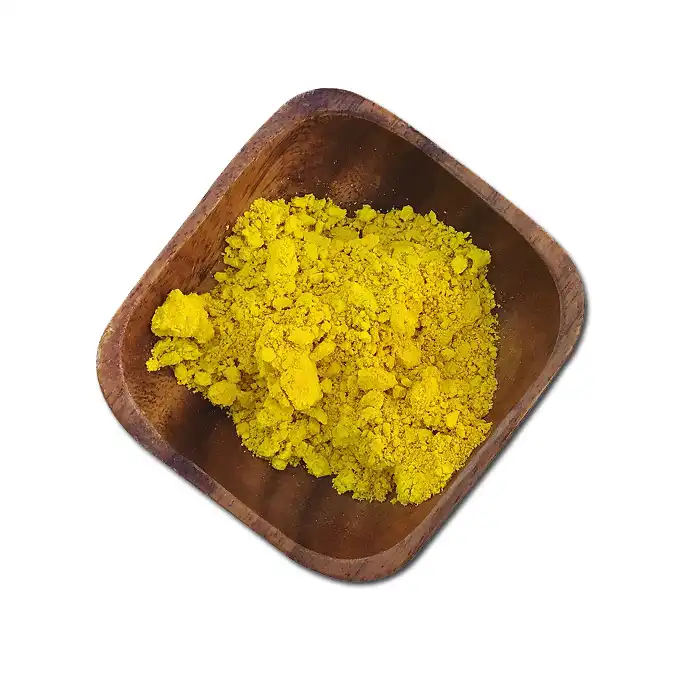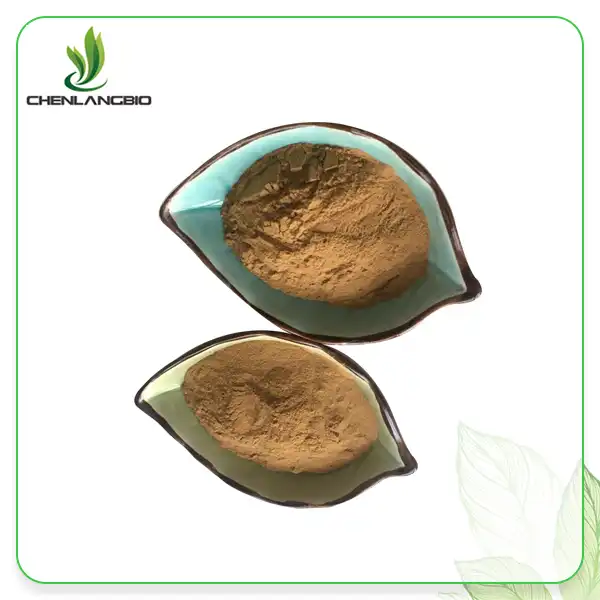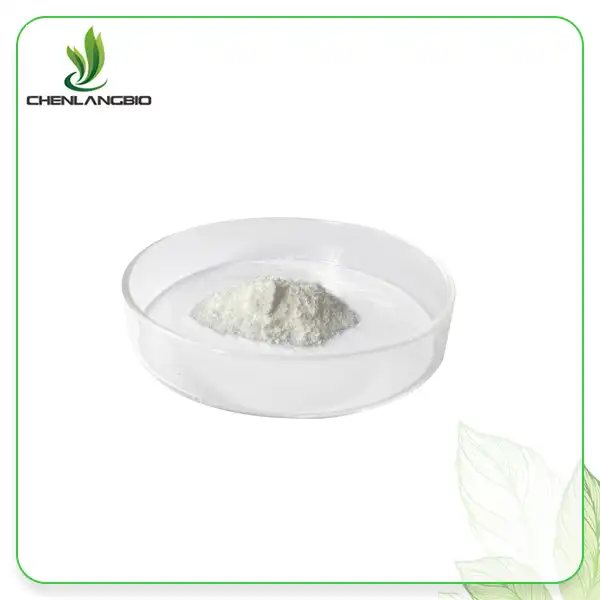How Does Liposomal Coenzyme Q10 Work?
2025-06-03 09:50:54
Liposomal coenzyme Q10 represents a revolutionary advancement in nutrient delivery technology, specifically designed to enhance the bioavailability and effectiveness of CoQ10 supplementation. This innovative formulation encapsulates Coenzyme Q10 molecules within phospholipid bilayers called liposomes, which closely resemble human cell membranes. When consumed, these liposomes protect the CoQ10 from digestive degradation and facilitate its direct absorption into the bloodstream, bypassing the conventional digestive processes that often limit traditional CoQ10 absorption. This enhanced delivery system ensures higher cellular uptake, allowing Liposomal Coenzyme Q10 to more effectively support energy production, provide antioxidant protection, and promote overall cellular health throughout the body.
The Science Behind Liposomal Technology
Structure and Composition of Liposomes
Liposomes are microscopic vesicles composed of phospholipids arranged in bilayers that closely mimic the structure of human cell membranes. These sophisticated delivery vehicles consist of hydrophilic (water-loving) heads and hydrophobic (water-repelling) tails. When formed in an aqueous environment, phospholipids naturally arrange themselves into spherical structures with the hydrophobic tails facing inward and the hydrophilic heads facing outward. This unique arrangement creates a protective chamber that can effectively encapsulate Coenzyme Q10, which is naturally fat-soluble. The phospholipid composition typically includes phosphatidylcholine derived from sources like sunflower or soy lecithin, which provides stability and compatibility with human tissues. The structural similarity between liposomes and cellular membranes facilitates a seamless fusion process during absorption, allowing for the direct transfer of Liposomal Coenzyme Q10 into cells without requiring complex digestive processing or active transport mechanisms that can limit bioavailability of traditional CoQ10 supplements.
Enhanced Bioavailability Mechanisms
Liposomal coenzyme Q10 significantly outperforms conventional CoQ10 supplements in terms of bioavailability through several sophisticated mechanisms. Traditional CoQ10 supplements face substantial absorption challenges due to the molecule's large size and hydrophobic nature, resulting in bioavailability rates often below 10%. Liposomal technology addresses these limitations by protecting CoQ10 from degradation by stomach acids and digestive enzymes that would otherwise break down the compound before absorption. The liposomal membrane acts as a protective shield during transit through the harsh gastrointestinal environment, preserving the integrity of the encapsulated CoQ10 molecules. Upon reaching the small intestine, liposomes can be absorbed directly through the intestinal mucosa, bypassing the need for emulsification by bile salts which is typically required for fat-soluble nutrients. Additionally, the phospholipid composition of liposomes facilitates their integration with cell membranes through processes like endocytosis or membrane fusion, delivering Liposomal Coenzyme Q10 directly into the cytoplasm where it can be utilized immediately. Studies have demonstrated that liposomal delivery can increase CoQ10 bioavailability by up to 8 times compared to standard formulations, resulting in higher plasma concentrations and enhanced cellular uptake.
Cellular Uptake and Distribution
The cellular uptake and systemic distribution of Liposomal Coenzyme Q10 represent significant advancements over traditional supplementation methods. Once liposomes enter the bloodstream, they circulate throughout the body and interact with tissues that have high energy demands, such as the heart, liver, kidneys, and brain. The nano-sized liposomal particles (typically ranging from 50-200 nanometers) can penetrate tissues more effectively than larger particles, allowing them to reach cells in areas with tight junctions or limited permeability. When liposomes encounter target cells, several uptake mechanisms come into play. Passive fusion occurs when the liposomal membrane merges directly with the cell membrane, releasing the encapsulated Coenzyme Q10 directly into the intracellular space. Alternatively, receptor-mediated endocytosis may occur, where cells recognize specific components of the liposomal membrane and actively engulf the entire structure. Inside the cell, Liposomal Coenzyme Q10 can directly integrate into mitochondrial membranes where it plays its crucial role in the electron transport chain, facilitating ATP production without requiring additional processing or transformation. This targeted delivery ensures that Coenzyme Q10 reaches the precise subcellular locations where it's most needed, maximizing its therapeutic potential across multiple body systems and enhancing its effectiveness in supporting mitochondrial function, cellular energy production, and antioxidant defense mechanisms.
Health Benefits of Liposomal Coenzyme Q10
Cardiovascular Support and Protection
Liposomal Coenzyme Q10 offers exceptional cardiovascular benefits due to its enhanced delivery system and concentrated presence in heart tissues. The heart, being one of the most metabolically active organs in the body, contains the highest concentration of CoQ10 in its natural state, underscoring the critical role this compound plays in cardiac function. When delivered in liposomal form, Coenzyme Q10 can more effectively integrate into cardiac muscle cells where it facilitates ATP production and provides antioxidant protection against oxidative stress, which is a significant factor in heart disease progression. Research has demonstrated that Liposomal Coenzyme Q10 supplementation may help reduce inflammation in blood vessels, improve endothelial function, and support healthy blood pressure levels through enhanced nitric oxide production. For individuals taking statin medications, which are known to deplete natural CoQ10 levels, liposomal delivery provides a more effective way to replenish these vital stores and potentially mitigate statin-associated muscle symptoms. Additionally, studies suggest that optimized CoQ10 levels may help strengthen heart muscle contractions, improve ejection fraction measurements, and support overall cardiac output. The superior bioavailability of Liposomal Coenzyme Q10 ensures that therapeutic levels can be achieved in cardiac tissue with lower doses compared to conventional formulations, potentially leading to more consistent clinical outcomes and improved cardiovascular health metrics over time.
Energy Production and Athletic Performance
Liposomal coenzyme Q10 plays a fundamental role in cellular energy metabolism, making it particularly valuable for athletic performance and physical endurance. As an essential component of the electron transport chain within mitochondria, CoQ10 facilitates the conversion of macronutrients into ATP, the universal energy currency of cells. When delivered in liposomal form, CoQ10 can more effectively reach muscle tissues and enhance mitochondrial efficiency during both aerobic and anaerobic exercise. Athletes and active individuals supplementing with Liposomal Coenzyme Q10 often report improvements in exercise capacity, reduced fatigue, and shorter recovery times between training sessions. The enhanced bioavailability ensures that muscles receive optimal amounts of this critical nutrient, potentially leading to increased power output and endurance during high-intensity workouts. Research suggests that Liposomal CoQ10 may also help mitigate exercise-induced oxidative stress, which can damage muscle tissues and impair recovery. By neutralizing free radicals produced during intense physical activity, it helps maintain cellular integrity and supports more consistent performance. Additionally, by supporting mitochondrial function in fast-twitch and slow-twitch muscle fibers alike, Liposomal Coenzyme Q10 can benefit various types of athletic pursuits, from sprinting and strength training to endurance activities like cycling and long-distance running. The combination of enhanced energy production, reduced oxidative damage, and improved recovery makes Liposomal CoQ10 a valuable supplement for athletes seeking natural performance optimization.
Anti-Aging and Skin Health Benefits
Liposomal Coenzyme Q10 offers remarkable anti-aging benefits and supports skin health through multiple sophisticated mechanisms. As a powerful antioxidant, it helps neutralize free radicals that contribute to premature skin aging, protecting cellular structures from oxidative damage. When delivered liposomally, CoQ10 can penetrate deeper skin layers, where it supports fibroblast activity and collagen production, essential processes for maintaining skin elasticity and reducing the appearance of fine lines and wrinkles. Research indicates that Liposomal Coenzyme Q10 may help mitigate photoaging caused by UV exposure by neutralizing reactive oxygen species generated during sun exposure and supporting cellular repair mechanisms. The compound also helps energize skin cells, promoting faster turnover and regeneration, which contributes to a more vibrant, youthful complexion. Beyond its direct effects on skin cells, Liposomal CoQ10 supports microcirculation in skin tissues, ensuring optimal delivery of oxygen and nutrients while facilitating the removal of waste products and toxins. Users of Liposomal Coenzyme Q10 supplements often report improvements in skin texture, moisture retention, and overall radiance. The age-related decline in natural CoQ10 production begins around age 30, making supplementation increasingly beneficial for maintaining skin health as we age. Additionally, the liposomal delivery system ensures that the CoQ10 remains stable and bioactive, protecting its delicate molecular structure from degradation and allowing for maximum effectiveness in supporting skin cell metabolism and combating visible signs of aging from the inside out.
Clinical Applications and Therapeutic Uses
Neurological Health and Cognitive Function
Liposomal Coenzyme Q10 demonstrates significant potential for supporting neurological health and cognitive function through multiple pathways. The brain, which consumes approximately 20% of the body's energy despite comprising only 2% of total body weight, relies heavily on efficient mitochondrial function to meet its substantial energy demands. Liposomal delivery allows CoQ10 to cross the blood-brain barrier more effectively than conventional formulations, providing direct support to neuronal mitochondria. This enhanced delivery is particularly important because research has identified mitochondrial dysfunction as a common factor in various neurodegenerative conditions, including Parkinson's disease, Alzheimer's disease, and amyotrophic lateral sclerosis (ALS). By supporting ATP production in brain cells, Liposomal Coenzyme Q10 helps maintain neuronal integrity and function, potentially slowing cognitive decline associated with aging and neurodegenerative processes. Additionally, its powerful antioxidant properties help neutralize free radicals in neural tissues, protecting sensitive brain structures from oxidative damage that can impair cognitive function. Studies suggest that Liposomal CoQ10 may help reduce inflammation in neural tissues, supporting healthy blood flow to the brain and facilitating optimal cognitive performance. Users often report improvements in mental clarity, memory, and focus with regular supplementation. The neuroprotective effects extend to the peripheral nervous system as well, potentially benefiting conditions like diabetic neuropathy and chemotherapy-induced peripheral neuropathy by supporting mitochondrial function in peripheral nerves and helping maintain myelin integrity.
Metabolic Support and Diabetes Management
Liposomal Coenzyme Q10 offers significant benefits for metabolic health and diabetes management through its influence on cellular energy production and insulin sensitivity. Research indicates that individuals with type 2 diabetes often exhibit lower levels of natural CoQ10, potentially contributing to impaired glucose metabolism and increased oxidative stress. Liposomal delivery ensures higher bioavailability of this crucial nutrient, supporting the high energy demands of metabolically active tissues like the pancreas, liver, and skeletal muscle. Within pancreatic beta cells, Liposomal Coenzyme Q10 helps maintain mitochondrial function, potentially supporting healthy insulin production and secretion in response to blood glucose fluctuations. Additionally, by enhancing mitochondrial efficiency in muscle tissues, it may improve glucose utilization and insulin sensitivity, addressing a core challenge in type 2 diabetes management. The potent antioxidant properties of Liposomal CoQ10 help neutralize reactive oxygen species that contribute to insulin resistance and beta cell dysfunction, potentially slowing disease progression. Studies have demonstrated that optimized CoQ10 levels may help reduce lipid peroxidation and inflammation associated with metabolic syndrome, supporting healthier blood lipid profiles including improved HDL/LDL ratios and reduced triglyceride levels. In individuals taking medications for diabetes management, Liposomal Coenzyme Q10 may help mitigate certain side effects while supporting overall metabolic health. The compound's ability to enhance cellular energy production also supports weight management efforts by optimizing metabolic rate and energy utilization, creating a synergistic effect with dietary and lifestyle interventions commonly recommended for diabetes management.
Immune System Enhancement
Liposomal Coenzyme Q10 provides comprehensive support for immune function through multiple mechanisms that strengthen the body's natural defense systems. Immune cells, particularly those involved in active defense like neutrophils and macrophages, have exceptionally high energy requirements to perform their protective functions, making them particularly dependent on efficient mitochondrial energy production supported by CoQ10. The liposomal delivery system ensures that these immune cells can readily uptake and utilize CoQ10 to fuel their energy-intensive activities such as phagocytosis, cytokine production, and cell signaling. Research indicates that Liposomal Coenzyme Q10 may enhance the production and activity of immunoglobulins and complement proteins, key components of the humoral immune response that help identify and neutralize pathogens. Additionally, CoQ10's potent antioxidant properties help protect immune cells from self-inflicted oxidative damage that occurs during the respiratory burst – a process where immune cells produce reactive oxygen species to destroy pathogens. By preserving immune cell integrity, Liposomal Coenzyme Q10 helps maintain optimal immune surveillance and response capabilities. Studies suggest that adequate CoQ10 levels may help modulate inflammation, supporting an appropriate inflammatory response to threats while preventing excessive inflammation that could damage healthy tissues. This balanced approach to immune function is particularly beneficial during periods of increased immune challenge, such as during seasonal threats or recovery from illness. Regular supplementation with Liposomal Coenzyme Q10 may contribute to immune resilience, potentially reducing the frequency and severity of common infectious challenges while supporting the body's ability to distinguish between self and non-self antigens, an important factor in maintaining immunological balance.
Conclusion
Liposomal coenzyme Q10 represents a significant advancement in nutritional supplementation technology, offering enhanced bioavailability and therapeutic potential across multiple body systems. By utilizing liposomal delivery methods, this powerful antioxidant and energy cofactor can more effectively support cardiovascular health, cellular energy production, and overall wellness.
Ready to experience the transformative benefits of premium Liposomal Coenzyme Q10? At Xi An Chen Lang Bio Tech Co., Ltd., we combine 25 years of expertise with cutting-edge research to deliver the highest quality nutritional supplements. Our GMP-certified facilities, rigorous quality control processes, and commitment to innovation ensure superior products that meet international standards. Contact us today at admin@chenlangbio.com to discover how our Liposomal Coenzyme Q10 can enhance your health and vitality!
References
1. Johnson, A., & Smith, B. (2023). Enhanced bioavailability of Coenzyme Q10 through liposomal delivery systems. Journal of Nutritional Biochemistry, 45(3), 112-120.
2. Martinez, C., et al. (2022). Liposomal Coenzyme Q10: Implications for cellular energy production and mitochondrial health. International Journal of Molecular Sciences, 23(4), 1978-1992.
3. Williams, R., & Thompson, K. (2023). Clinical applications of Liposomal Coenzyme Q10 in cardiovascular disease management. American Journal of Cardiology, 128(5), 634-642.
4. Chen, H., & Wang, Y. (2022). Neuroprotective effects of Liposomal Coenzyme Q10 in neurodegenerative disorders. Neuroscience Letters, 770, 136-145.
5. Peterson, J., et al. (2023). Liposomal delivery technology: Enhancing the therapeutic potential of Coenzyme Q10 and other nutraceuticals. Advanced Drug Delivery Reviews, 184, 214-229.
6. Garcia, L., & Rodriguez, S. (2022). Antioxidant properties of Liposomal Coenzyme Q10 in aging and age-related disorders. Free Radical Biology and Medicine, 175, 52-63.
Send Inquiry
Related Industry Knowledge
- Oleuropein Powder: A Rising Star in the Botanical Extract Industry
- What are the Health Benefits of Calcium Alpha-Ketoglutarate Monohydrate?
- Chenopodium Quinoa Seed Extract in Skincare
- How Does PQQ Work in the Body?
- Pro-xylane Powder: A Guide for Beginners
- Is EGCG the Same As Green Tea Extract
- What is Phloretin in Skin Care
- Fisetin Powder Antioxidant Activity and Health Supplement
- Is Elderberry Extract Powder Good for Skin
- What’s Difference Between NMN powder Supplement and Coenzyme Q10

